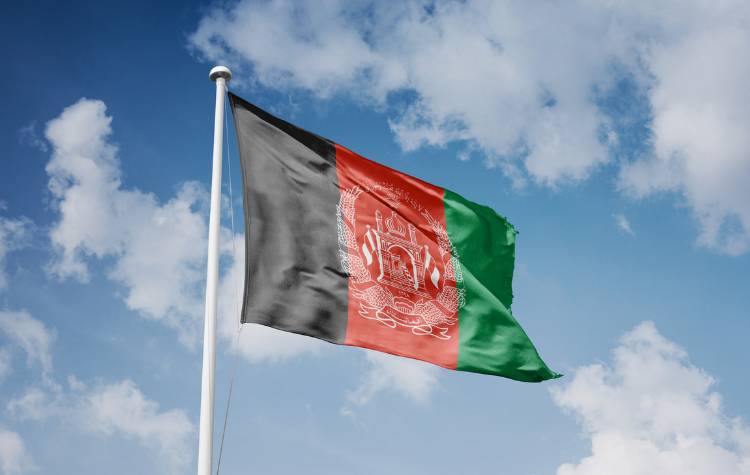(Bangkok/Kathmandu, 20 June 2022) — The United Nations Security Council must impose comprehensive targeted sanctions on the leadership and representatives of the Taliban, including the reinstatement of travel bans against Taliban leaders, said the Asian Forum for Human Rights and Development (FORUM-ASIA).
‘The Security Council has an opportunity to reinforce the ban on members and leaders of the Taliban when it reviews the exemption this month. The Taliban must be held accountable for the grave atrocities they continue to commit against the people of Afghanistan, especially women and girls, ethno-religious minorities, human rights defenders, journalists, and rights activists,’ said FORUM-ASIA.
‘Political reconciliation does not justify exemptions on travel anymore – the Taliban is blatantly committing serious human rights violations, including reprisal killings, disappearances, and extrajudicial killings, and an absolute rollback of women’s rights. It is imperative for the Council to reinstate travel bans on Taliban and hold them accountable for the rapidly deteriorating human rights situation in Afghanistan.’
The Security Council first imposed travel restrictions on the Taliban leadership in 1999 as a part of UN’s response to ‘violent and terrorist activities’ committed by the Taliban in Afghanistan. The Council then lifted the ban on senior Taliban officials in April 2019 to allow them to attend negotiations in Doha and travel elsewhere to participate in ‘peace and stability discussions.’[1]
However, the Taliban used their freedom to build relationships to reinforce their quasi-governmental status while refusing to negotiate with the Afghan government. In March 2022, the Council extended the travel ban exemption on senior members of the de facto Taliban authorities for 90 days.[2]
In less than a year since the Taliban take-over of Afghanistan in August 2021, the country has plunged into a deep socioeconomic and humanitarian crisis, rescinding 20 years of hard-won rights of the people of Afghanistan, especially of women and girls who have lost their basic rights and freedoms and are being systematically excluded from public life.
During the Taliban’s previous rule in Afghanistan between 1996 and 2001, they had severely rolled back on women’s rights as well as that of ethnic and religious minorities[3]; completely erasing women and girls from public life and persecuting Shias, Sikhs and Hindu minorities. A similar setback was witnessed when the Taliban rose to power last year. The nation has also witnessed a spree of killings of civilians, human rights defenders and minorities. There have been numerous cases of torture, extrajudicial killings, and arbitrary arrests.[4]
Restrictions on freedom of expression and association have drastically increased, leaving little to zero civic space. Earlier in May 2022, Taliban also dissolved the Afghanistan Independent Human Rights Commission, leaving vulnerable Afghans facing grave human rights violations with no mechanisms for redressal.[5]
FORUM-ASIA calls upon the United Nations Security Council to take strict measures against the Taliban and reimpose the travel ban against them. Allowing international travel for the Taliban is normalising a de facto regime that has a deplorable human rights record. FORUM-ASIA is deeply concerned about the human rights situation in Afghanistan, the complete erasure of women and girls from public life, and the intensifying attacks on fundamental freedoms.
— END —
About FORUM-ASIA:
The Asian Forum for Human Rights and Development (FORUM-ASIA) is a network of 85 member organisations across 23 countries, mainly in Asia. Founded in 1991, FORUM-ASIA works to strengthen movements for human rights and sustainable development through research, advocacy, capacity development and solidarity actions in Asia and beyond. It has consultative status with the United Nations Economic and Social Council, and consultative relationship with the ASEAN Intergovernmental Commission on Human Rights. The FORUM-ASIA Secretariat is based in Bangkok, with offices in Jakarta, Geneva and Kathmandu. www.forum-asia.org
For further information, please contact:
- South Asia Programme, FORUM-ASIA, [email protected]
For media inquiries, please contact:
- Communication and Media Programme, FORUM ASIA, [email protected]
[1]https://www.un.org/securitycouncil/sanctions/1988/exemptions/travel-exemptions-in-effect
[2]https://www.securitycouncilreport.org/atf/cf/%7B65BFCF9B-6D27-4E9C-8CD3-CF6E4FF96FF9%7D/S_RES_2611(2021)_E.pdf
[3]https://www.brookings.edu/essay/the-fate-of-womens-rights-in-afghanistan/
[4] https://www.hrw.org/world-report/2022/country-chapters/afghanistan
[5] http://l.forum-asia.org/ANNIAfg-May22
**
For the PDF version of the statement, click here



